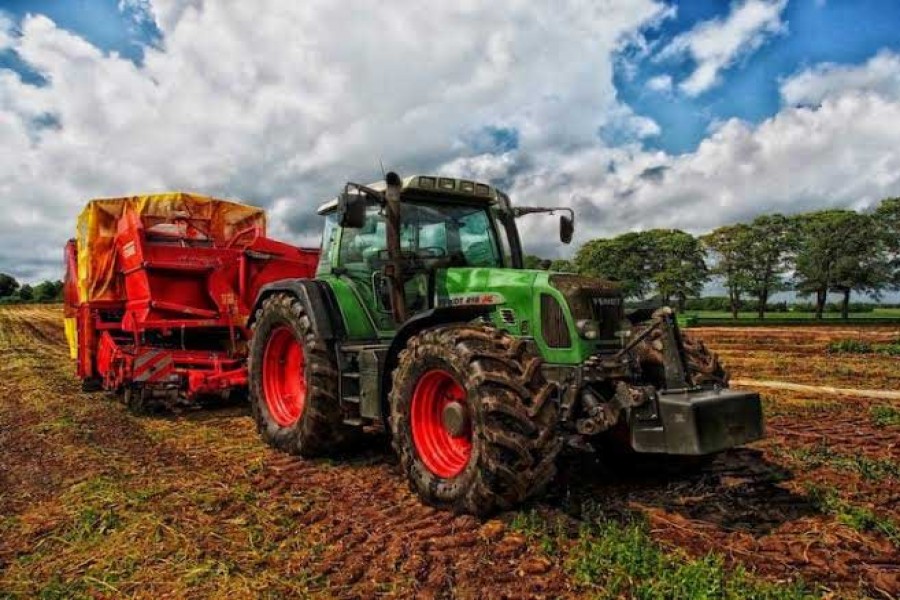The Cabinet's approval of the National Farm Mechanisation Policy 2019 recently is certainly a laudable move that many believe should have been taken much earlier. As per the policy, farmers would be able to buy farm machinery at lower prices and get low-cost or interest-free loans. In fact, farmers can avail, depending on the places they are from, incentive from 50 to 70 per cent while buying agricultural machineries and also avail free and low-cost loans, as the government looks to bring about considerable change in farming practices through increased adoption of technology and mechanisation amid rising costs and growing labour shortage.
According to reports, initially, the incentive would be given for a fixed period at the farmers' level in order to get them accustomed to mechanised farming. Farmers in haor and coastal regions have been given more importance providing for 70 per cent subsidy to buy agriculture machinery, while those in other parts of the country would be entitled to 50 per cent. As per the policy, importers would have to bring in machinery that suits the country's environment and soil. Interestingly, the prime minister has reportedly instructed the relevant authorities to incorporate a provision allowing farmers to form cooperatives for buying expensive farming tools. Experts believe that effective implementation of the Policy will also cause commercialisation of the farming sector, far more than it is now.
The need to reinvigorate agricultural productivity to increase crop yield is gaining more and more prominence not only in countries with farmland constraints but also in those where availability of land is no major problem. This is particularly so because innovations and technology have caused a huge watershed in crop productivity since the past decades calling for significant changes in the patterns of cultivation, resulting in manifold increase in the yield of crops of almost all varieties. Gone are the days of conventional practices of cultivation reliant mostly on traditional practices handed down from generations.
In Bangladesh, of late, the practice has attained a mix of conventional and semi-intensive methods of cultivation backed largely by introduction of mechanisation, though only partly -- replacing manual ploughs with power tillers, and indigenous irrigation practices with diesel-run devices. A great leap in the direction of boosting productivity may take place with the introduction of mechanical devices in all critical stages of cultivation and harvesting. It is here that the aforementioned Policy is expected to play a facilitating role. There are difficulties in various stages of manual or semi-mechanised farming, especially in stages such as transplantation of paddy saplings, harvesting and threshing, which affect the output, besides causing unavoidable wastage. Implementation of the Policy at the field level will obviously depend a good deal on the assistance and support of the extension staff of the agriculture department. While advocacy in favour of mechanisation is important, equally important is training the farmers on making the best of the mechanical devices and loans that may be available under the Policy.


